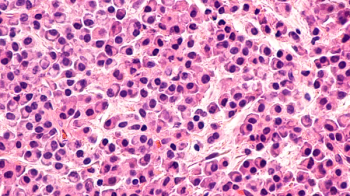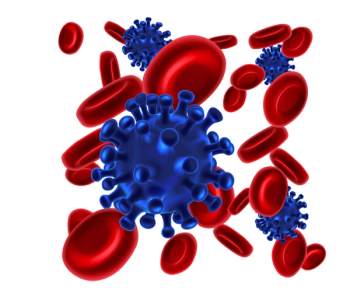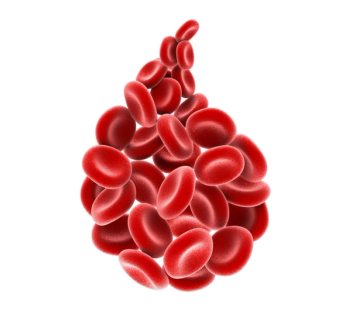
Under the EUA, the Xpert Mpox test is considered authorized for use in moderately complex point-of-care settings using the GeneXpert Xpress system.

Under the EUA, the Xpert Mpox test is considered authorized for use in moderately complex point-of-care settings using the GeneXpert Xpress system.

Data from 52 studies show that antimicrobial stewardship programs largely reduced antibiotic use for pediatric care.

The drive for personalized approaches to cancer have helped to create treatments for patients with rare cancers who have few, if any, options.

Idecabtagene vicleucel prolonged progression-free survival by more than 1 year in a difficult-to-treat patient population with relapsed or refractory multiple myeloma.

Association of Black Health-System Pharmacists focuses on advocacy, collaboration, education, leadership, and research.

Relative efficacy of nirmatrelvir–ritonavir appears similar across risk groups, but older adults at risk of severe COVID-19 may benefit more.

Study findings confirmed that in asthma, chronic obstructive pulmonary disease, HIV, and influenza, census data differed from the epidemiological data.

Although investigative team is predominantly investigating Priscilicidin for topical applications, they are not ruling out potential oral applications.

Amanda Ryan, the director of Education for the Pharmacy Quality Alliance (PQA), discusses a new PQA program to teach pharmacy and other health professions students the basics of quality measurement and strategies to improve medication safety, adherence and appropriate use.

The patient's list of medications reveals significant drug interactions to be addressed.

Study shows no robust differences in blood pressure, heart rate, lipids, and glucose measurements in children conceived using assisted reproductive technologies.

Investigators focus on whether legalization of the drug is associated with an increase in health care use for the psychotic disorder.

Streptolysin O appears to influence the pathogenesis of Streptococcus group A and direct mutation-mediated virulence in a host.

The association with subgroups of gene variations based on expression or function should be assessed in larger studies, investigators say.

Trial meets its primary endpoint of progression-free survival regardless of mismatch repair status in patients with stage 3 or 4 or recurrent endometrial carcinoma.

By binding to and inhibiting RANKL, denosumab decreases the production and activity of osteoclasts, resulting in reduced bone loss.

New guidance provides recommendations on infection prevention strategies, performance measures, and how to implement these approaches.

Earlier this week, the FDA Oncologic Drugs Advisory Committee also voted 8 to 5 in support of data for dostarlimab-gxly in rectal cancer.

A booster vaccine for COVID-19 increased the concentration of antibodies in older patients more than younger patients.

Several studies have noted a potential link between methotrexate and an increased risk of skin cancer.

Prior to the development of vaccines and direct-acting antivirals, hepatitis infections were treated through methods of prevention.

Long COVID can impact quality of life, with some symptoms lasting for 1 year before the patient recovers to baseline.

Physician outlines the process developed at The Ohio State University Comprehensive Cancer Center to help manage patient pain before, during, and after surgery without the use of opioids.

Cancer screening rates were still below the expected rates of return in both 2021 and 2022.

Multiple adverse outcomes were associated with an even higher risk of heart disease.

Individuals with more fast-food options in their communities had 13% higher odds of incident stroke.

Investigators hope that new findings can cultivate new methods of facilitating immune response to attack lung tumors.

Paroxysmal nocturnal hemoglobinuria is a rare and life-threatening blood condition.

JNJ-80202135 (nipocalimab) treats hemolytic disease of the fetus and newborn caused by maternal red blood cells.

In a fact sheet released by the White House, President Joseph Biden called a $35 monthly cap on insulin for all Americans a “commonsense, life-saving protection.”